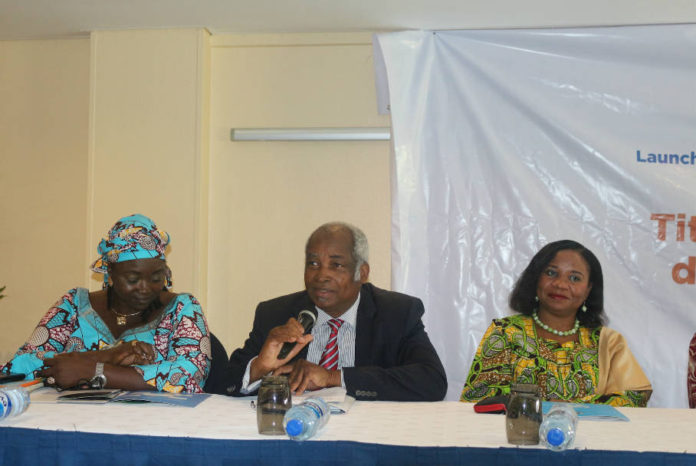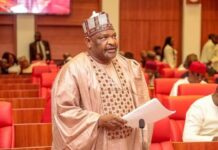
The Association for Reproductive and Family Health (ARFH) has advocated for increased focus and support for the girl child education up to the secondary school level, pointing out that early marriage and childbirth are grossly responsible for girls’ dropout of schools.
Delivering a goodwill message at the United Nations Population Fund (UNFPA) Launch of the State of the World Population (SWOP) Report 2016 in Abuja Tuesday, the President of the Association, Professor Oladapo Ladipo, canvassed for equal education opportunities for both boys and girls.
“Let me reiterate again my message to our government, early marriage and childbirth, which is responsible in part for girls’ drop out of school, must be discouraged, and government officials must speak up, join the advocacy, and do everything within their powers to discourage and legislatively ban early marriage”.
“I also want to continue to advocate that our government must recognise the opportunity cost for many families, especially the poorest of the poor, the cost of sending a girl to school seems like an extra burden, especially when schools require even nominal direct and indirect fees; hence, to get more girls in school and remain in school.
“Education for girls and boys must be free to secondary school level with increased focus and support for the girl child. For many, who drop out of school, the only legacy they have for their many children is povert. Against this background, there should be very strategic commitment at all levels and from all stakeholders here present,” he said.
citizentv.ng reports that the theme of this year’s launch is: “Investing in supporting 10-year-old girls: What is at stake?”
Speaking the theme, Ladipo, said: “This theme is again very timely at this crucial period because there has been series of wake- up calls for all countries to recognise that young people are at the heart of achieving the 2030 SDG agenda with greater priority dedicated to young girls aged 10 to 19 years.
“This theme again should be of great interest to us as a nation given the Nigeria’s demographic profile, which is made up of young population with approximately 45 percent of our population being below the age of 15 years,” he said.
Ladipo spoke on the significance of the adolescence period of the girl child.
“The age 10 is a critical age when symptoms and signs of puberty emerge with physical, emotional and psychological changes that coincide with the period when young girls are transiting from primary schools to secondary schools in Nigeria.
“This is the period when they are confronted with developmental challenges, many drop out of school, forced into early marriage, and consequently have to face a lifetime of inequality and servitude compounded by complications of teenage pregnancies.
“Why are girls under 10 years significant to contributing the attainment of SDGs? Girls make up the major foundation of all societies as they would grow up and eventually birth generations to come, but first they must be supported to grow in the best way.
“All hands must be on deck to enhance girl child education to provide them the opportunities to make informed choices in life and to live a productive life. Therefore, governments at all levels must develop and implement strong policies to achieve this goal,” he noted.
He, thereafter, urged both parents and guardians to provide the girl children around them with the appropriate education they need to grow.
“Every individual should make efforts to see that girls in their community are well educated, as this will have a positive impact on their future and that of their families. Young people are sexual beings with unique and diverse sexual and reproductive health needs.
“Most importantly amongst these needs are youth friendly services and sexuality education, the provisions of which is based on young people‘s sexual rights. Access to qualitative youth friendly healthcare in all communities, especially underprivileged communities is a sine-qua-non to ensure good health and physical wellbeing of the girl-child that will enable her to concentrate and focus on her education.
“They should be well informed, supported and empowered in their decisions relating to general health, sexual health and reproduction, as well as career goals,
“Again, this theme should be of great interest to us as a nation given the fact that, If we do not program for young people in a more strategic way, the likelihood that we will record any tangible attainment of improvement in our vicious cycle of poverty and poor health indices will continue to be a mirage,” he adde
























